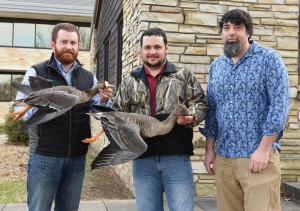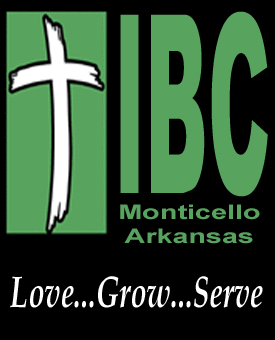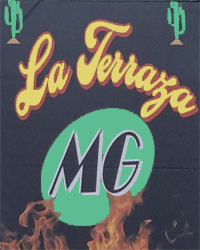Rare Goose Harvested By Arkansas Hunters Originated In Russian Arctic
May 17th, 2018 by UAM News It’s more than 6,000 miles from the eastern tip of Russia to the Arkansas delta near Dumas, but apparently a goose harvested by a pair of Monticello hunters in January made the journey.
It’s more than 6,000 miles from the eastern tip of Russia to the Arkansas delta near Dumas, but apparently a goose harvested by a pair of Monticello hunters in January made the journey.
The rare goose, identified by a University of Arkansas at Monticello scientist as a tundra bean goose, was harvested by Chase Milligan of Dumas and Hunter Stafford of Monticello. The well-traveled goose turned out to be a 100 percent genetics match for a subspecies originating in the Russian Arctic.
Dr. Douglas Osborne, associate professor in the School of Forestry and Natural Resources and a waterfowl research specialist with the Arkansas Forest Resources Center housed at UAM, took measurements of body size, weight and gender of the goose and determined by body size and coloration that the rare goose was likely a subspecies of a taiga or tundra bean goose.
Osborne collected tissue and feather samples and sent them to the U.S. Geological Survey genetics laboratory in Anchorage, Alaska for something called mitochondrial DNA sequencing. The rare goose was determined by genetics to be a 100 percent match for the tundra bean goose subspecies A. f. serrirostris that was sampled on Lake Kejonuma, Japan last winter. The Arkansas specimen was also a 99.1 to 99.5 percent match for the same subspecies collected in the Russian Arctic during the breeding season.
Osborne speculates that the Arkansas goose mixed with a flock of white-fronted geese commonly known as specklebellies that migrate annually to their winter grounds in the Arkansas delta. “This is the first ever record of a tundra bean goose east of the Pacific flyway,” said Osborne. “As far as I can tell, there have been only six records of a bean goose in the U.S., all of which have been in Alaska, California and Oregon.”
For more information, contact Jim Brewer, director of media services, at (870) 460-1274.
Choose another article
Newer article: Chamber Holds Ribbon Cutting for Southark Wellness Clinic
Older article: Koty Means



























































